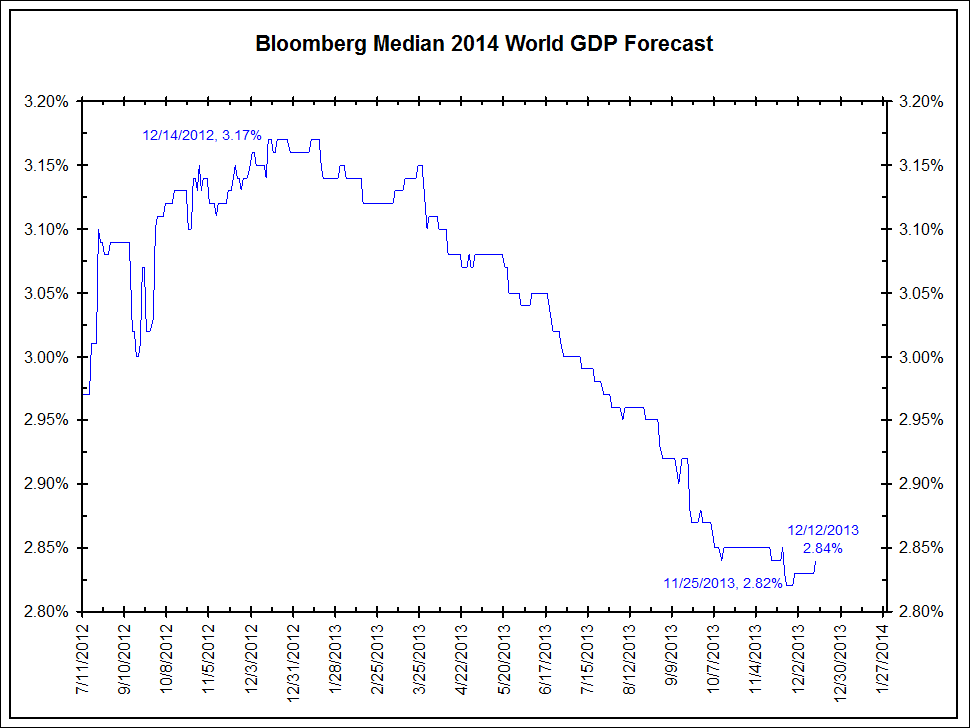Faster economic growth is just around the corner. At least that’s what economists from such august institutions Goldman Sachs Group Inc., Deutsche Bank and Morgan Stanley would have you believe. According to Bloomberg News these economists expect that, “global growth will accelerate at least 3.4 percent in 2014 from less than 3 percent this year as the euro area recovers from recession and China and other emerging markets stabilize.”
Sounds great, the only problem is, economists have little credibility when it comes to predicting faster growth in the future. As James Bianco of Bianco Research points out in note this morning, mainstream economic forecasts have consistently predicted higher growth in coming years than actually gets delivered, and as time goes on, economists tend to lower their forecasts dramatically. In fact, since 2010, global GDP growth has declined every year, and it looks like 2013 will continue this trend:
- 2010 World Real GDP Growth = 3.99%
- 2011 World Real GDP Growth = 2.99%%
- 2012 World Real GDP Growth = 2.17%
- 2013 World Real GDP Growth = 2.06% (estimate)
So why have economists predictions been overly optimistic? Bharat Trehan, an economist with the Federal Reserve Bank of St. Louis suggests that the severity of the crisis has thrown off standard economic models. Since we haven’t experienced anything of the magnitude of the 2008 financial crisis in several generations, the models most economists were using to predict growth didn’t anticipate the severity of the effects the recession had on the global economy. For example, Trehan writes, “Prolonged durations of unemployment have caused those out of work to lose skills, and many have become discouraged and left the labor force. Business investment has been weak, which has damped the growth of the capital stock. And productivity growth and net business formation have also slowed.”
The good news is that the economics profession has learned from some of its mistakes. According to Trehan, predictions for growth in recent years have been closer to reality as the profession incorporates some of the permanenet damage inflicted by the crisis into its models. That said, until the predictions conform even closer to reality, we should take take them with a grain of salt.


